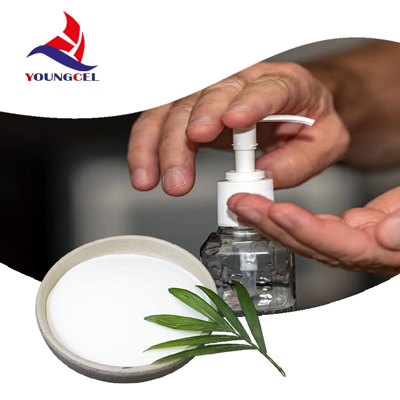Understanding Natrosol Thickeners A Key to Enhanced Viscosity in Various Applications
Natrosol thickeners, derived from cellulose, are an essential component in numerous industries, including food, cosmetics, pharmaceuticals, and adhesives. Known for their exceptional thickening and stabilizing properties, these products play a crucial role in enhancing texture, consistency, and overall performance of various formulations.
What is Natrosol?
Natrosol is a brand name for a specific type of hydroxyethyl cellulose (HEC) thickener produced by the Ashland company. It is a white, odorless powder that, when dispersed in water, swells and forms a viscous gel. Due to its non-ionic characteristics, Natrosol is compatible with a wide range of ingredients, making it a versatile choice in formulation development.
Properties and Benefits of Natrosol Thickeners
1. Thickening Efficiency One of the primary functions of Natrosol thickeners is to increase the viscosity of solutions. The ability to thicken without altering the fundamental properties of the product is vital, particularly in food formulations, where mouthfeel is crucial.
2. Stabilization Natrosol acts as a stabilizer in emulsions, preventing the separation of oil and water phases. This property is especially valuable in cosmetic formulations, where a stable product appearance is essential for consumer satisfaction.
3. Temperature and pH Stability Natrosol thickeners exhibit stability across a wide range of temperatures and pH levels. This resilience makes them suitable for applications that are subjected to varying processing conditions, such as heating or acidification in food production.
natrosol thickeners

4. Improved Suspension In products containing suspended solids, Natrosol helps maintain uniformity and prevents settling. This property is particularly beneficial in the paint and coatings industry, where even distribution of pigments is crucial for product performance.
Applications of Natrosol Thickeners
Food Industry In the food sector, Natrosol is commonly utilized in sauces, dressings, and bakery products. It enhances the texture and mouthfeel of products like mayonnaise and cream soups, providing a premium quality that consumers expect.
Cosmetics and Personal Care In skincare and cosmetic applications, Natrosol is used in lotions, creams, and gels. Its ability to provide a silky feel and improve the spreadability of products makes it a favored ingredient among formulators aiming for luxury textures.
Pharmaceuticals The pharmaceutical industry also employs Natrosol thickeners in oral and topical formulations. It serves as a suspending agent in liquids and gels, ensuring that active ingredients are evenly distributed and effectively delivered.
Adhesives and Coatings In adhesives and coatings, Natrosol contributes to the desired viscosity and application properties. It aids in controlling flow and leveling during application, which is essential for achieving a smooth finish.
Conclusion
Natrosol thickeners are more than just viscosity enhancers; they are multifunctional ingredients that provide stability, improve product performance, and enhance user experience across various applications. As industries continue to innovate and consumers demand higher quality products, the role of Natrosol thickeners will remain pivotal in developing formulations that meet these needs. Understanding the properties and appropriate usage of Natrosol can help formulators create effective and appealing products that stand out in the competitive marketplace. Whether in the kitchen, the cosmetic aisle, or the pharmacy, Natrosol thickeners contribute to the quality and effectiveness of everyday products we rely on.
-
A Comprehensive Guide to Methyl Ethyl Hydroxyethyl Cellulose: Applications and Industry InsightsNewsNov.24,2025
-
Understanding Methyl 2 Hydroxyethyl Cellulose: Uses, Benefits & Industry InsightsNewsNov.24,2025
-
Hydroxyethyl Methyl Cellulose HEMC: Industrial Uses, Benefits & Future TrendsNewsNov.23,2025
-
HEMC Cellulose: Versatile & Sustainable Industrial Polymer | YoungcelNewsNov.23,2025
-
Methyl Hydroxyethyl Cellulose: Versatile Building Block for Industry & SustainabilityNewsNov.23,2025
-
CAS 9032 42 2: Understanding Polyvinyl Alcohol's Impact on Industry & SustainabilityNewsNov.22,2025




